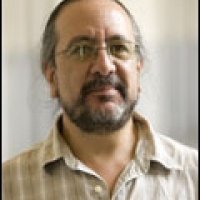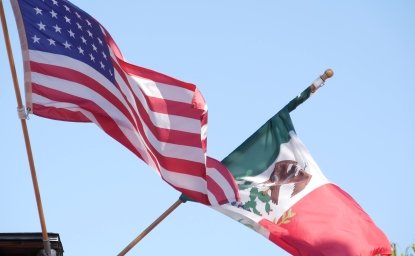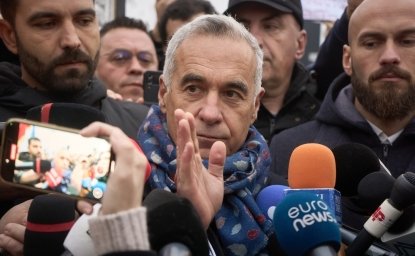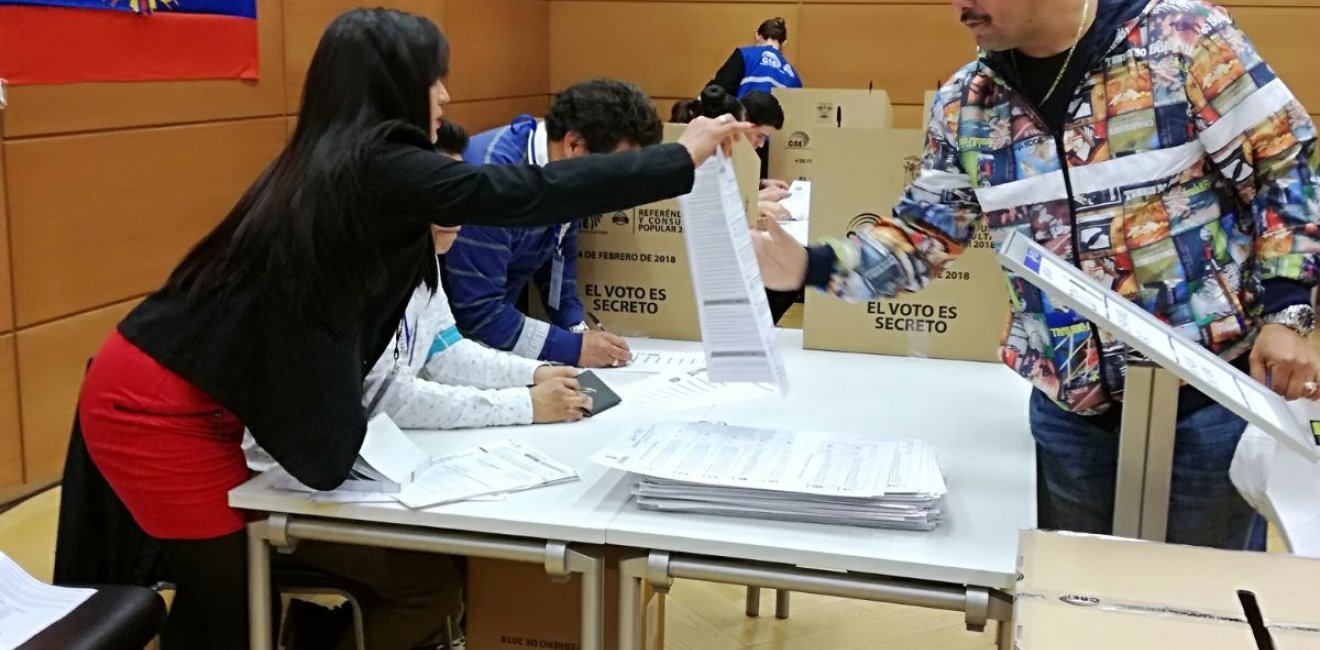Populist presidents are often giants with feet of clay. At the same time that they seem to have a firm grip of power, their personalist style of rule means that without their leadership, their movements and political projects can disintegrate. After winning the 2013 election with over 50 percent of the vote, President Rafael Correa’s party, Alianza País, controlled the assembly (as congress is called in Ecuador), the courts of justice, and all institutions of accountability. Following the example of Venezuela’s Hugo Chávez, Correa reformed the constitution in 2015 to allow for his permanent reelection. Yet the timing did not work out so well for him. The price of oil, Ecuador’s largest source of foreign exchange, went down. Indigenous groups, environmentalists, workers, and sectors of the middle class took to the streets to protest his plans to stay in power indefinitely. Opinion polls showed that Correa would have a difficult time winning the 2017 election, and he decided not to run.
Lenín’s Perestroika
When Lenín Moreno and Jorge Glas, Correa’s hand-picked successors won the 2017 election, Ecuador was polarized in two camps. Moreno, who served as Correa’s vice president from 2007 to 2013, received 51 percent of the vote in the second round of the vote. His rival, Guillermo Lasso, a Catholic banker, was supported by the right, the business community, and some leftist parties and social movements who sought to put an end to autocracy. Lasso did not accept the results and, without proof, claimed fraud. President Correa and his followers were determined to stop at all costs what they viewed as the ascension of the right in Latin America. Correa’s detractors were convinced that Lenín Moreno would follow the autocratic policies of his predecessor and cover up corruption.
The opposition and Alianza País coincided in believing that Moreno would be Correa’s loyal puppet. Things turn out quite differently—and unexpectedly. President Moreno broke with his mentor, took over Alianza País, and started dismantling Correa’s autocratic grip on all institutions of accountability. Most notably, he won a February 2018 referendum to prevent Correa from running for reelection and to forbid politicians charged with corruption from holding posts in the government. Correa now is the leader of the opposition and claims that Moreno betrayed him and his citizen’s revolution. Correa will not be able to be a candidate in 2021; and if he is implicated in acts of corruption, his entire political future will be uncertain.
The opposition and Alianza País coincided in believing that Moreno would be Correa’s loyal puppet. Things turn out quite differently—and unexpectedly.
Unlike Chile, Argentina, Brazil, and Paraguay—countries in which the right displaced the left in elections—in Ecuador Alianza País, the largest leftist party, remains in power. Moreno empowered the institutions of accountability and justice to lead a campaign against corruption. The comptroller and the office of the attorney general investigated cases of corruption. Jorge Glas, who served as vice president under Correa from 2013 to 2017 and briefly under Moreno, as well as former members of Correa’s cabinet, are serving terms in jail. It is quite likely that Correa will be investigated and, perhaps, charged with corruption.
Alianza País was more a political machine activated to win elections than it was a typical political party, and its different tendencies had in common only their loyalty to Correa. Without Correa’s leadership, the party exploded into two factions. After breaking with Correa, Moreno won the support of most elected officials and now controls the party. Correa and a handful of his loyal followers abandoned Alianza País and pledged to form a new political movement. Yet Correa still commands the support of 30 to 40 percent of Ecuadorians, according to the results of the February 2017 elections.
Correa’s legitimacy was grounded in the winning of elections to displace traditional parties; the redistribution of oil rents; the articulation of technocratic arguments that he was leading Ecuador to hyper-modernity; and a populist discourse that transformed political rivals into enemies. Correa won 11 plebiscitarian elections between 2006 and 2013. He combined populist and technocratic appeals. He employed Manichean rhetoric to convert rivals into enemies, surrounding himself with experts and claiming to lead the technical and rational transformation of Ecuador’s development model towards the production of nanotechnology and biotechnology. When Moreno demonstrated that corruption and inefficiency were widespread in Correa’s administration, he called into question Correa’s self-promotion as the expert leading the modernization of Ecuador. Moreno also broke with Correa’s populist rhetoric that polarized society into friend and enemy. Instead, Moreno has relied on dialogue with different sectors of society and on the politics of compromise. He is not using the state media for his own self-promotion, nor is he attacking journalists and activists in civil society. His victory in the February 2018 referendum allows him to get rid of Correa’s cronies at the highest levels in the court system and in all the institutions of accountability. It is an open question whether Moreno will allow for the reconstruction of the public sphere, social movements, civil society, and democracy after ten years of autocratic rule.
Correa’s Legacy
Correa won the 2006 election when all institutions of democracy were in crisis. He came to power after widespread movements of resistance to neoliberalism. Three presidents were removed by congress and were unable to finish their terms. He proclaimed himself as the leader of a citizen’s revolution and promised to call for a new constituent assembly to overhaul all institutions. Correa abandoned neoliberal policies, strengthened the state, and put it at the center of development. When the prices of oil were high, he redistributed oil rents and reduced the levels of poverty. Correa was also elected by promising to restore Ecuador’s national sovereignty. Ecuador had surrendered its currency, the sucre, for the U.S. dollar and had allowed the United States to establish a military base in Manta. Correa overhauled Ecuador’s foreign policies, joining ALBA, CELAC, and UNASUR.
Correa promised a better democracy based on social justice, while disregarding the institutions that protect pluralism. His project from the outset was autocratic. He followed a populist playbook of concentrating power in the presidency, controlling all institutions of accountability and the courts, using constitution-making instrumentally to centralize power, waging war with the media, attempting to control NGOs and civil society, creating social movements from the top-down, and criminalizing protest.
Lenin Moreno and the Future of Democracy
President Moreno is strong and, paradoxically, simultaneously weak. He is ruling with a constitution and institutions that have concentrated power in the presidency. He is weak because he had to impose his authority on Correa’s personalist party. Many former members of Correa’s cabinet shifted loyalties. Some joined Moreno’s camp because Correa had humiliated them, while others aimed to preserve their party and project beyond Correa’s leadership. Most local caciques and power brokers who control voters through the clientelistic exchange of votes for resources shifted their loyalty to Moreno. After all, he is in control of state resources, and Correa no longer has access to the pork barrel. Correa relies now solely on his charisma, making it hard to imagine that he will be able to maintain his current level of support of about 30 to 40 percent.
Moreno is trying to transform Alianza País into a non-caudillista political party. His project is to make AP into a party of the democratic left. His assets include the fact that he is in control of the state, AP is the largest political organization, and he can exchange access to services, jobs, and other resources for political loyalty.
President Moreno is strong and, paradoxically, simultaneously weak.
The right does not trust Moreno. They want him to follow Guillermo Lasso’s neoliberal policies, forgetting that Moreno won on a leftist ticket. The right supported Moreno in the February 4, 2018, referendum, but abandoned him the day after the election. The right wants a total overhaul of Correa’s economic and foreign policies. Moreno promised that he would not adopt neoliberal adjustment policies or slash social spending. But he does aim to establish trade deals with the United States and the countries of the Trans-Pacific Partnership. The right also dreams of a reversal of Correa’s foreign policy and hopes that Moreno will rid the government of all of Correa’s former collaborators. Moreno aims to keep a leftist identity while engaging in dialogue with the right and potentially offering them some concessions. For its part, the right could use the opening of the political system and the end of confrontation to build strong political parties. One hopes that the right understands this political moment as one of transition to democracy, in which all sectors of society need to compromise in order to rid the country of Correa’s authoritarianism.
Looking toward the future, the left could use the opening of the political system to push for many repressed demands. Social movements need to regroup and become stronger after ten years of cooptation and repression. Moreno’s democratic opening and the end of fear of repression are likely to encourage people to march in the streets and protest. Indigenous and environmental groups might protest against mining projects, public sector workers might demand a reinstatement of their right to strike, and so forth.
Correa’s future is uncertain. He is temporarily banned from a future attempt at reelection; but laws in Ecuador are made in the interest of those in power. It is thus possible that Correa could resurrect his political career and try to become yet again his nation’s redeemer.
*Carlos de la Torre is Professor of Sociology at the University of Kentucky and a former Wilson Center Fellow.
Author

Professor, Department of Sociology, University of Kentucky

Latin America Program
The Wilson Center’s prestigious Latin America Program provides non-partisan expertise to a broad community of decision makers in the United States and Latin America on critical policy issues facing the Hemisphere. The Program provides insightful and actionable research for policymakers, private sector leaders, journalists, and public intellectuals in the United States and Latin America. To bridge the gap between scholarship and policy action, it fosters new inquiry, sponsors high-level public and private meetings among multiple stakeholders, and explores policy options to improve outcomes for citizens throughout the Americas. Drawing on the Wilson Center’s strength as the nation’s key non-partisan policy forum, the Program serves as a trusted source of analysis and a vital point of contact between the worlds of scholarship and action. Read more

Explore More
Browse Insights & Analysis
Navigating US-Mexico Relations: Opportunities Amid Challenges

In Search of Russia’s Digital Trace in Romania’s Political Crisis


